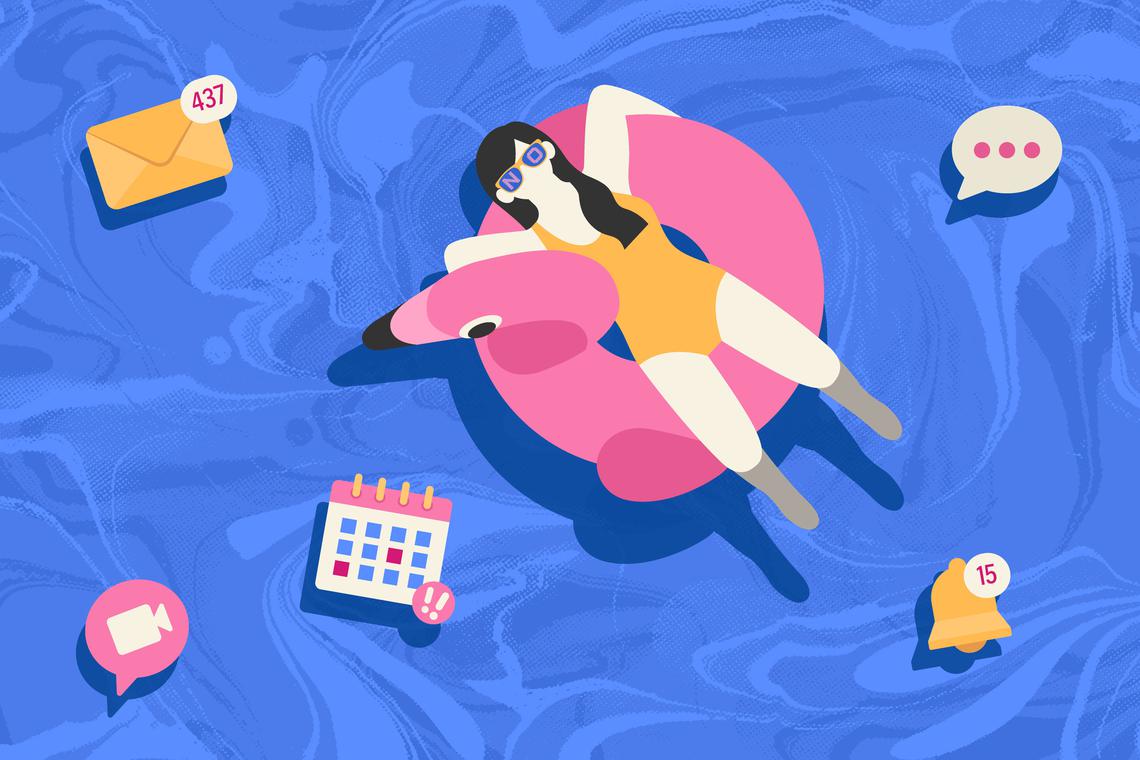In this series, manpower correspondent Tay Hong Yi offers practical answers to candid questions on navigating workplace challenges and getting ahead in your career. Get more tips by signing up to
The Straits Times’ Headstart newsletter.
A: It is common for employees to feel some unease when returning to work after a break, says Ms Juliana Pang, a counsellor at mental health platform Intellect.
“Some of my clients tell me that they start counting down the days to their return, and this can make it difficult for them to enjoy the tail end of their vacation.”
Other symptoms of post-holiday slump to look out for include mood changes, anxiety and ruminating about the impending return.
Stress stemming from the mental burden of managing overflowing inboxes, backlogged tasks or looming deadlines could be the root cause of these symptoms, Ms Pang says.
“Others may worry about the challenging personalities they have to interact with on their return. Even when the actual workload is reasonable, the mental shift back into work mode can feel daunting.”
Ms Pang says it is helpful to note the intensity and duration of any symptoms faced.
“If they start to affect your daily functioning and ability to manage regular interpersonal interactions, it may be a sign of something more serious than just discomfort.
“Being aware of how your mind and body react during this transition can reveal important clues about your overall well-being.”
If these reactions become overwhelming or persist for a prolonged period, seeking support from a mental health professional can be a valuable step towards addressing the underlying causes of the stress, Ms Pang adds.
It is possible to start making preparations for one’s duties before the holiday ends to ease the transition, says Dr Vincent Oh, senior lecturer in psychology at the Singapore University of Social Sciences.
However, he adds, this move reduces work-life separation.
“Personally, I would suggest that during one’s vacation, one should strive to live in the present and cherish the joys of taking a break.”
Dr Oh says research suggests that savouring the present moment during positive experiences helps people gain more from them and improves their happiness.
“It can be difficult not to worry about one’s upcoming return to work as our minds have a natural tendency to focus on ‘unsolved problems’, and such invasive thoughts can happen even when one tries not to worry.
“It’s okay to have such thoughts, and when they come, take a few deep breaths but slowly try to return your attention to the present moment and savour the joy of being on break.”
It also helps to collect mementoes of the holiday, such as souvenirs or photos, Dr Oh says. This helps workers to relive the joys of their holiday after it is over.
As for what someone can do when they clock in for work again, Dr Oh encourages taking a problem-focused approach to clearing tasks at hand.
“When we feel dreadful and overwhelmed by our work, it’s very tempting to avoid it or procrastinate, but this ultimately prolongs the problem and doesn’t solve it, which further worsens our anxiety.
“Rather, it is better to take an organised approach to getting things done.”
Creating a checklist of tasks to be cleared, in order of priority, can also help provide a sense of progression and validate your success in getting things done, which eventually reduces anxiety towards uncompleted tasks, Dr Oh says.
Ms Pang says another approach to consider is to begin with smaller, more manageable items to rebuild momentum. She also encourages scheduling one or two “buffer days” to recharge at home before actually starting work again.
“Allowing time to recover from travel, re-establish routines and mentally shift back into work mode can make a noticeable difference.”
She adds: “Avoiding late-night flights before your first day back also helps ensure you’re well rested and ready to re-engage.”
It is also crucial to set aside time for self-care routines, even as you readjust your routine, Ms Pang says.
“Re-establishing healthy habits, such as exercising, having a regular sleep schedule, and a balanced diet, can help counteract the effects of jet lag or holiday indulgence.
“Incorporating mini-breaks like a midday walk or short breaks from the workstation can support both mental clarity and emotional well-being.”
askst@sph.com.sg
ST HeadstartWork BestieaskST JobsCareersWorking life
